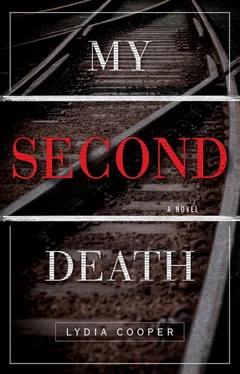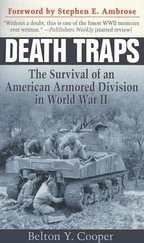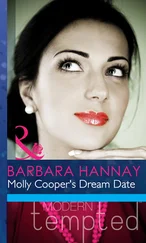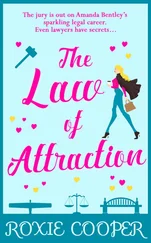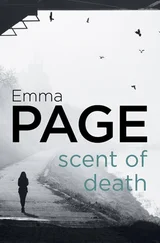Lydia Cooper
MY SECOND DEATH
A NOVEL
For Joanna: now you’re in a book I wrote.
I would like to thank the best and kindest agent in the business, Amy Rennert, and Robyn Russell, editorial superstar, without whom this book would not exist, or at least would not exist in a form that any sane person would lay claim to. Robyn especially demonstrated uncanny and superwomanly patience, insight, and sense of humor through the book’s evolutionary process.
And of course, in a purely physical sense, this book would not exist in the form it currently takes without my publisher, Ben LeRoy, who has incredible energy and great vision. I am truly lucky to have him as a publisher. I would also like to thank Ashley Myers at F+W Media for her keen editorial eye, Arin Murphy Hiscock for her brilliant (and incredibly quick) copyediting, and the talented production department at Tyrus Books.
I was so fortunate to study writing with Bob Pope and Greg Garrett, who are magnificent teachers and writers and mentors and yet I still don’t have a big enough vocabulary to thank them properly.
And I have to acknowledge Emily Kolbe. I wouldn’t write if it weren’t for her. Even though she is dead now, she taught me about why people write and so in a way, everything I write is for her and because of her. I also want to thank my wonderful friends who have adventures with me in foreign countries and in weird parts of the U.S., and who have, all of them (you know who you are), taught me how to be a better person. And finally, my family, which defies adjectives, with a special shout-out to Kara and Beatrice for having such delightfully perverted tastes in television shows.
I gasp and wake up, damp with sweat, to a dim gray dawn and the gentle murmur of a late autumn drizzle. Rain crawls in shifting patterns across the windowpane as I wait for my pulse to slow. It’s always like this when I dream about my brother’s afterbirth: panic, something between lust and terror.
I was almost eleven when he was born. My older brother and I were waiting in the hallway. My mother lay exhausted on crinkly white sheets, and she turned her head to the doorway where the nurse stood like a guard. You can come in, come look , the nurse said, and I went into the room. I looked down. A lucent, pulsing cord of blue and gray sprouted from the baby’s taut belly. The doctor clipped the cord and lifted the heavy sac of placenta into a stainless steel surgical bowl, a blood-dark jellied anemone. He saw me watching and he raised his eyebrows a little, and then he winked, as if he could tell how much I loved the smell of the rich, metallic blood. But what I loved best was the neat snick of the scissor blades. It was seventeen years ago today, but I can still hear the sound of the scissors like an ache in my molars. That sound, that smell.
I’m not an idiot. In my relatively short life I’ve been through enough shrinks and therapists that I am well acquainted with the convoluted machinations of my psyche. I know better than to lose myself in visions of my younger brother’s afterbirth.
I scrub my thumbs against my eye sockets and get out of bed. The concrete floor is cool under my bare feet. Because there isn’t a bath in the garage where I sleep, I have to go into the house to shower.
The kitchen is quiet when I let myself in. The silent tableau looks like a postmodern Vermeer masterpiece, the pristine domestic scene full of shiny metallic objects — a coffee pot, a microwave, an electric can opener — but devoid of humans. I go upstairs.
The bathroom is still hot and steamed and smells of a man’s cologne. My father must have already left for work. Condensation drips down the mirror, dragging clear lines so that it looks like the mirror’s stripping itself off in pieces. Slices of my face appear. I check my watch. I’ve got fifteen minutes to shower, brush my teeth, and assemble the strips of my face in the right order. I grin at the mirror and see one eyeball, one incisor grinning back.
After my shower, I wrap a towel around my hair, pulling on a threadbare Jane’s Addiction T-shirt, a pair of jeans, and a black hoodie that I zip up to my throat.
The bedroom door to the left of the bathroom is tilted open. I stop in the hallway and listen for his sleepy grunts and the rustle of sheets. My little brother. He’s a junior in high school, small and acne-chinned.
With my fingertips I brush his door in, and it swings on silent hinges. The shadows cling to his rumpled sheets, to the lines of his outflung limbs. One bare arm stretches over his pillow, his fingers curled against the headboard. I imagine running my fingers across his knuckles, the downy hair on his forearms, the rubbery tubes of veins. I imagine taking my pocketknife and peeling back skin to see the rich gelatinous blood, latticed muscle, and pearl-white tendons.
I rest my forehead against the wooden doorframe and wait for him to draw another breath. Then I go back into the bathroom and in the condensation on the mirror I write, Happy Birthday, Kid .
I pour coffee into a thermos then head out to the carport, ducking against a sudden spatter of cold rain. Dried leaves hiss across the tarmac. The sky swarms with roiling clouds, lavender and steel.
Under the canted carport roof a faded blue tarp covers the car. Not a car, the car. I drag the tarp off a 1971 Chevrolet Chevelle with a 350 cubic-inch V8 engine sitting under its sloped hood. In this case, the V8 engine is more of a V7, one cylinder misfiring. I need to sit down and order parts sometime.
The cracked vinyl seat is cold, and I set the thermos between my thighs to drive. I roll down the driveway, the car’s broken insides heaving and bucking against the strain. Windshield wipers screech metronomically, swish-screek, swish-screek. My parents’ house is on a brick-paved street and when I pull onto the street the car’s suspension creaks and rattles through pocked cobbles filled with rainwater.
The house is in west Akron, a maze of brick streets and old houses with turrets and leaded glass windows, solariums and Tudor-style wood frames. The city of Akron, Ohio, is, as everyone knows, an ugly city, a plastic and rubber city with dirty streets and abandoned factories and warehouses. Goodyear and Firestone built Akron a century ago; the sky darkened as greasy factory smoke billowed out into the wind, and now, a century later, gritty rain weeps down on us ten months out of the year. To the north, Lake Erie is a gray sea floating with soggy trash, yellow McDonald’s wrappers, iridescent skins of oil, and pale dead fish with raw white bellies and staring eyes.
But this is west Akron, cloaked in ancient oaks and maples, aristocratic, quiet, something slightly removed, a swath of archaic rectitude and decaying beauty. Long ago the Seiberlings and all the wealthy tire-factory-owning families lived here. They built their mansions and now the biggest mansions are sub-divided into apartments and the smaller houses are dreary, cracked relicts of a noblesse long gone. The families who live here today are a different aristocracy, a poor, working-class aristocracy.
Like the faded paradise in which they live, my parents are gods in ruins. My father is an academic dean at the university. My mother teaches piano lessons. They are quiet, respectable, successful people whose lives are free of blemish. They use the correct silverware when they eat and they are unfailingly polite to each other. Unassuming, educated, urbane, they err perhaps on the side of decorum rather than happiness.
Like the rest of the city of Akron, however, the other members of my family are more tarnished, a faintly sordid smell clinging to the corners of their lives. My older brother, Dave, recently moved back to Ohio from New York. He now lives in a bohemian studio apartment littered with cigarette butts, twists of aluminum foil, a threadbare volume of Ginsberg’s “Howl.” He published a short story when he was in high school, a chapbook of poetry in his first year at college, and another critically received book of poems before he was twenty-three. His charm is manic, addictive, and because he makes almost all of his editors’ deadlines and usually manages to walk without a stagger he is forgiven his tawdry aura and loved by all.
Читать дальше
